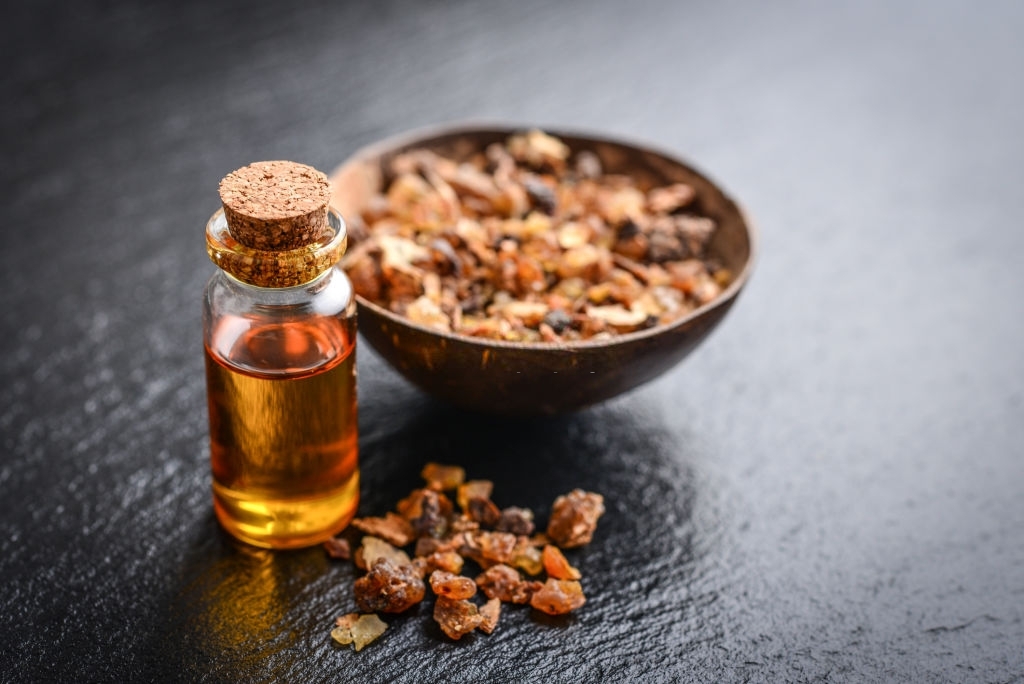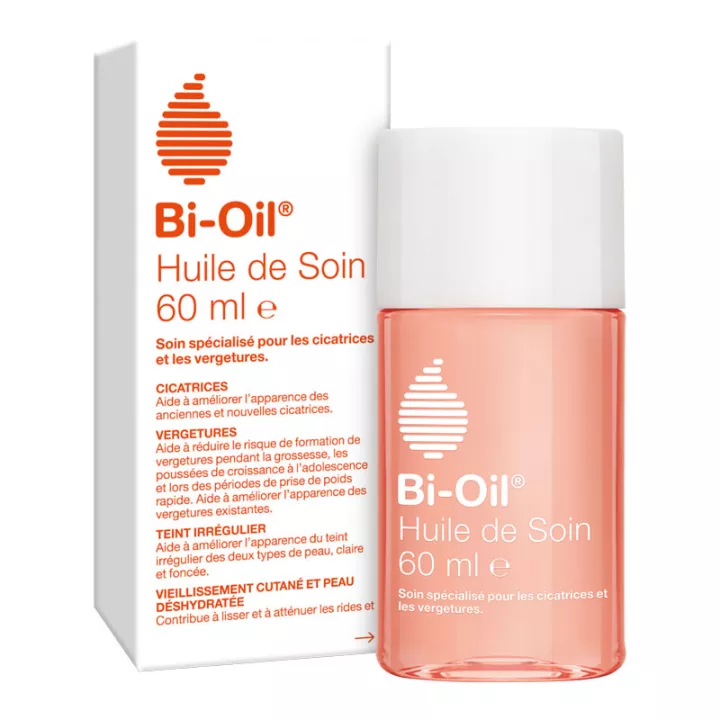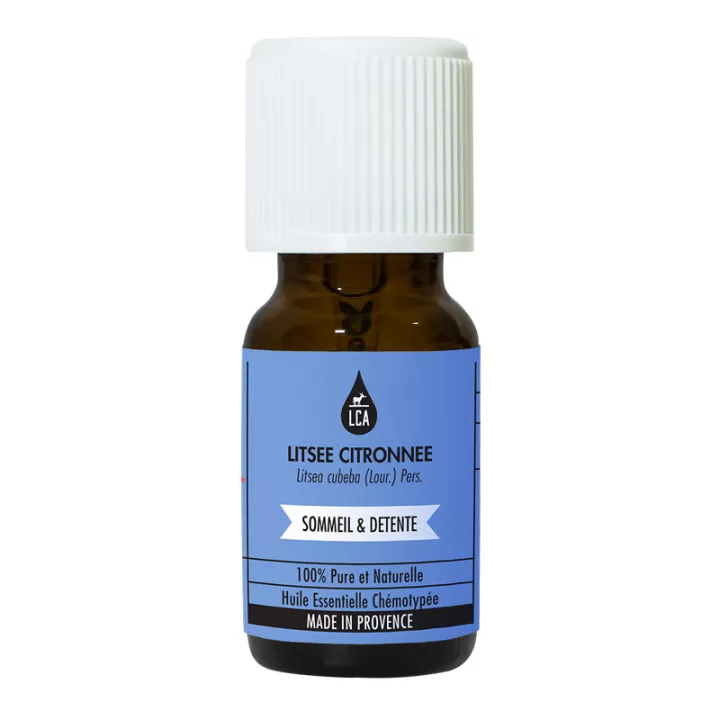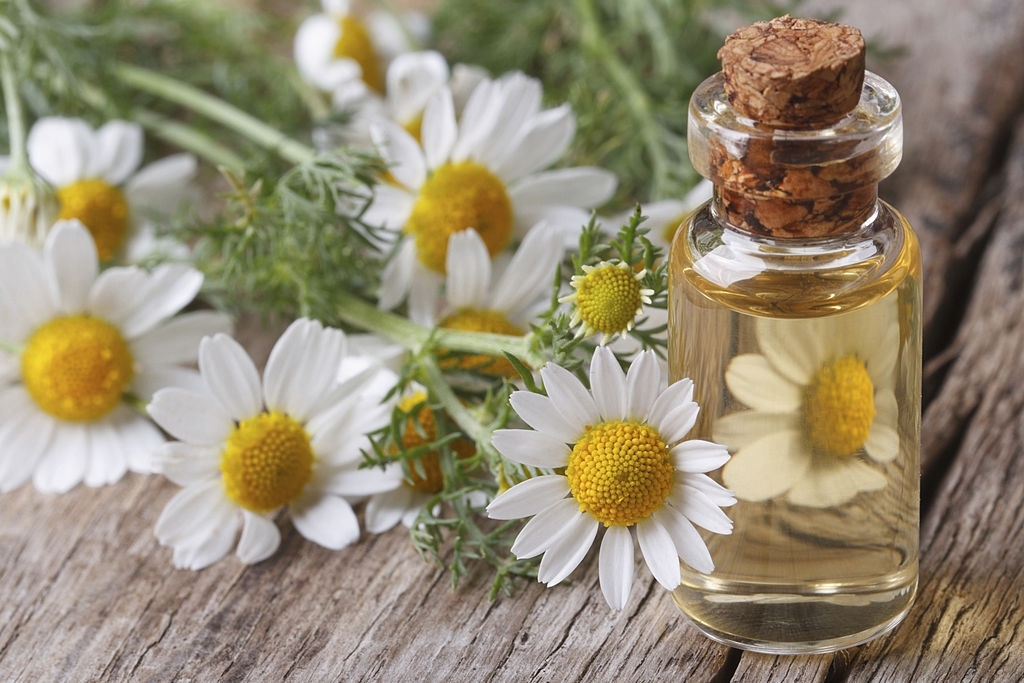What is LCA Myrrh Essential Oil 5 ml used for?
LCA Myrrh Essential Oil can be used for..:
- Scar care
- Pressure sores
- Chapped lips, hands and feet
- Boils
- Psoriasis Eczema
- Sunburn
- Stretch marks
- Difficult healing
- Gingivitis
- Aphthosis
Native to Somalia and the Red Sea, myrrh is an aromatic gum resin produced by the myrrh tree. It has a sweet, woody fragrance. It has been used for years, notably in skin care thanks to its regenerating and purifying action.
Its many properties:
- Skin healing
- Sclerosing
- Anti-degenerative
- Anti-infectious - Antiviral
- Anti-inflammatory
- Analgesic: local anaesthetic action
Anti-inflammatory and analgesic effects
Myrrh essential oil has remarkable anti-inflammatory and analgesic effects. Studies have shown that Myrrh resin components such as furanoeudesma-1,3-diene and curzerenone act on opioid receptors, providing pain relief comparable to that of morphine. This pain-relieving action is confirmed by hotplate and writhing tests. Myrrh also blocks interleukin-1, helping to reduce inflammation.
Antimicrobial effect
The sesquiterpenes present in Myrrh essential oil give it powerful antimicrobial properties. These compounds have demonstrated antibacterial activity against common pathogens such as Staphylococcus aureus, Pseudomonas aeruginosa and Escherichia spp. They also have effective antifungal properties against Candida albicans. Myrrh essential oil is also known for its antiviral activity, making it a valuable remedy against viral infections.
Other beneficial effects
In addition to its anti-inflammatory, analgesic and antimicrobial effects, Myrrh essential oil offers a range of other health benefits. It is recognized for its calming and endocrine properties, as well as its hormone-like action, notably as a thyroid modulator and anaphrodisiac. It also has anti-degenerative, immunostimulant (especially against viruses) and healing properties. Myrrh essential oil also acts centrally on rhythms, reordering and restructuring them, and is renowned for its harmonizing properties on the central nervous system.
Anti-cancer properties
Many derivatives of Myrrh essential oil have anti-cancer properties. The sesquiterpenes contained in this oil have been studied for their ability to inhibit cancer cell growth and induce apoptosis (programmed cell death) in certain types of cancer. This property makes them a promising area of research in the fight against cancer.
We also offer Neroli essential oil from the LCA aromatherapy laboratory, at the best price in our online pharmacy.
Directions for use and dosage
The cutaneous route is the most appropriate.
Skin disorders: 2 drops in 8 drops of vegetable oil, massaged into the affected area.
Give your opinion on the advice for use and dosage of LCA Myrrh essential oil with our partner Verified opinions after your purchase.
Precautions for use
- For adults only
- Not recommended for pregnant or breast-feeding women.
- Do not swallow!
- Cytotoxic but not genotoxic essential oil
- Do not diffuse or inhale (except by moist inhalation).
- Not for internal use
- Drug interactions with essential oils containing more than 10% ketones or phenols
- It is contraindicated in hormone-dependent pathologies due to its hormone-like action.
What is its composition?
Chemical compounds:
- Furanoeudesmadiene 1,3 diene: 20.00 to 52.00%.
- Curzerene: 10.00 to 40.00%.
- Lindestrene: 3.00 to 13.00%.
- beta elemene: 3 to 10%
100% pure chemotyped essential oil (free from other related essential oils) 100% integral (not discolored, not deterpenated, not rectified...) 100% natural (not denatured with synthetic molecules)
Botanical name: Commiphora myrrh
Plant part extracted: Dried oleoresin gum ("tears")
Production process: Complete steam distillation
Presentation
5 ml bottle.







